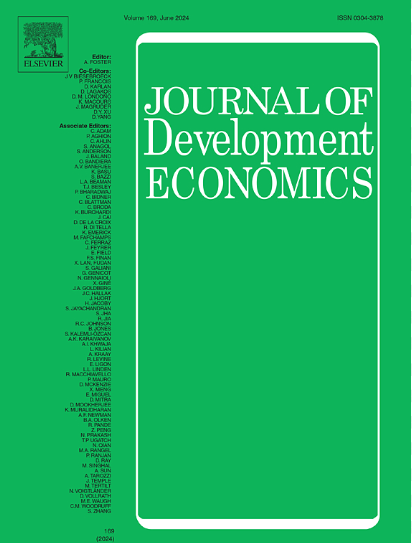The long shadow of conflict on human capital: Intergenerational evidence from Peru
IF 5.1
1区 经济学
Q1 ECONOMICS
引用次数: 0
Abstract
This paper estimates the intergenerational impacts of mothers’ exposure to the 1980–2000 Peruvian civil conflict on their children’s socio-emotional skills development. We combine longitudinal data, which measures skills across a child’s life, with historical geo-located conflict data. Exploiting spatial and temporal variation in conflict episodes, we find that mothers’ exposure to conflict has adverse intergenerational effects on their children’s socio-emotional outcomes of agency and pride. These effects are present at ages 8 and 12 and are robust to alternative specifications. At age 15, mothers’ conflict exposure increases children’s propensity to engage in crime-related risky behavior. The analysis of mechanisms highlights the role of reduced parental investments in children, driven by constrained household resources, a quality–quantity trade-off, and diminished maternal empowerment. Finally, an examination of the mother’s migration history reveals that migration decisions of her parents during the conflict partially mitigated the adverse effects on the socio-emotional development of their grandchildren.
求助全文
约1分钟内获得全文
求助全文
来源期刊

Journal of Development Economics
ECONOMICS-
CiteScore
8.30
自引率
4.00%
发文量
126
审稿时长
72 days
期刊介绍:
The Journal of Development Economics publishes papers relating to all aspects of economic development - from immediate policy concerns to structural problems of underdevelopment. The emphasis is on quantitative or analytical work, which is relevant as well as intellectually stimulating.
 求助内容:
求助内容: 应助结果提醒方式:
应助结果提醒方式:


